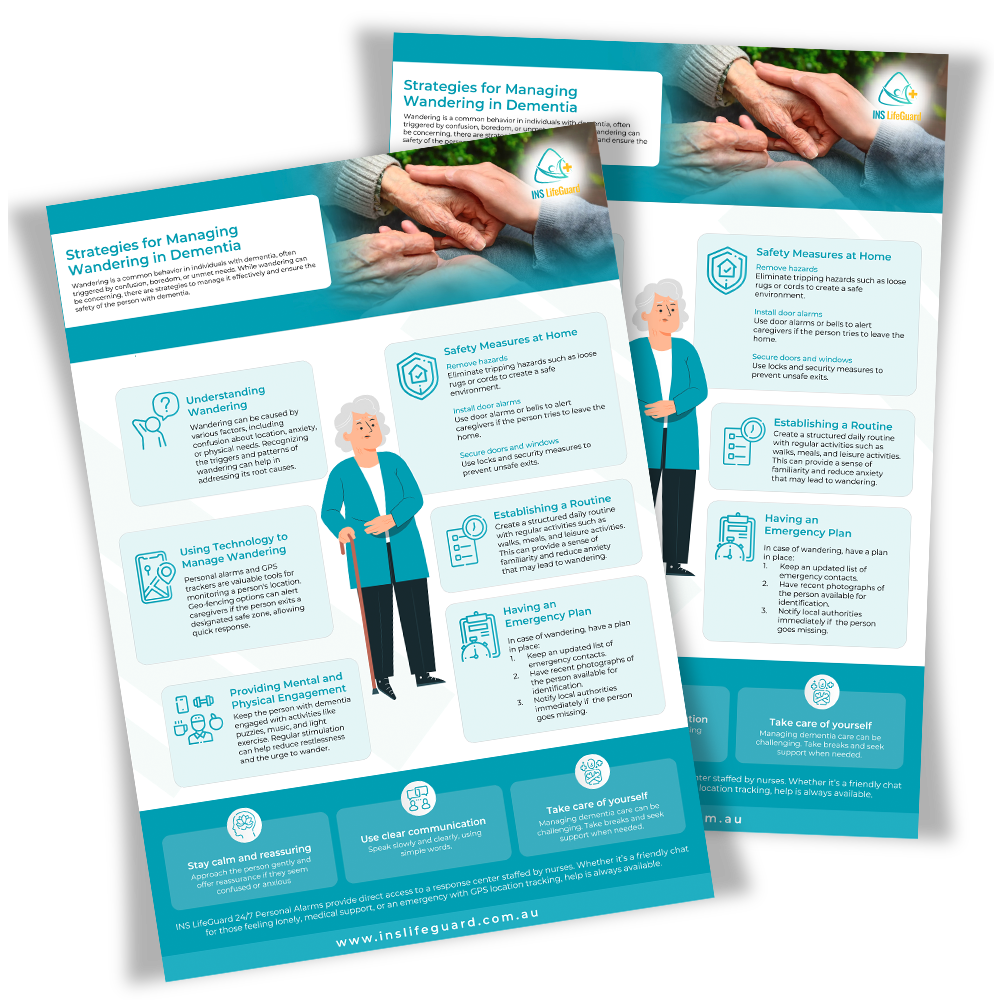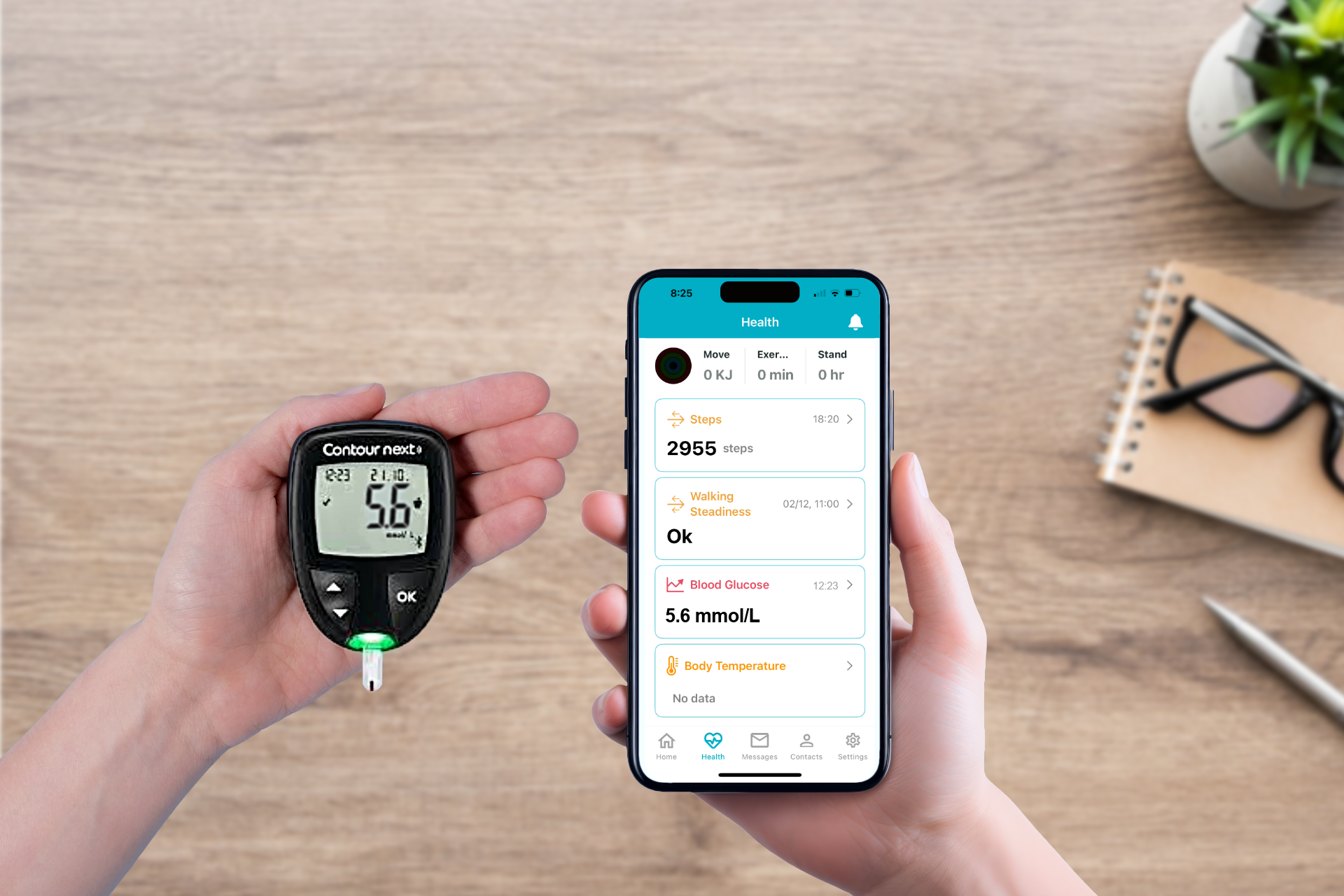Have a Question?
Supporting People with Dementia: Managing Wandering Behaviours

In 2024, over 421,000 Australians are living with dementia, and this figure is projected to increase to more than 812,500 by 2054. Dementia rates rise significantly with age, particularly affecting people aged 75 and older, and become even more prevalent among those over 90, with nearly 43% of this age group impacted. Meanwhile, younger onset dementia, affecting those under 65, currently represents around 29,000 cases, with an estimated rise to approximately 41,000 by 2054.
Women generally have higher rates of dementia than men, especially among the oldest age groups, where the prevalence rate for women is 1.4 times that of men. The anticipated rise in dementia cases is mainly driven by the ageing Australian population.
Wandering is a common behaviour among individuals with dementia, where a person may roam aimlessly, often seeking something or someone that may not exist. It can be confusing and distressing for both the individual and their caregivers, as wandering sometimes lacks an apparent purpose. For instance, a person with dementia might repeatedly walk up and down a hallway or enter and exit the house with no clear goal. Wandering can occur at any time—day or night—and becomes concerning when it leads to attempts to leave a home or care facility.
Why Does Wandering Occur?
Wandering is often linked to various factors, some of which might not pose a direct threat and could even serve as beneficial exercise, reducing boredom. However, it's important to understand the underlying causes, which can include:
Searching for safety or familiar surroundings: The person might be trying to locate a familiar place or individual that provides a sense of security.
Habitual walking: If the individual had a regular exercise routine earlier in life, this behaviour might persist.
Disorientation: Confusion about location or surroundings can trigger wandering.
Routine confusion: An inability to distinguish day from night or to maintain a routine can lead to aimless walking.
Boredom and lack of stimulation: Insufficient engagement can cause individuals to wander to pass the time.
Anxiety or fear: Emotional distress often manifests as wandering behaviour.
Physical needs: Hunger, thirst, or the need to use the bathroom can initiate wandering as the person seeks relief.
Sleep disturbances: Disrupted sleep patterns can lead to wandering during the night.
Frustration or agitation: A sense of frustration might cause attempts to exit the home or care facility.
How Personal Alarms Support Dementia Care
Personal alarms play a vital role in enhancing the safety and well-being of individuals with dementia, particularly those prone to wandering. These devices bring peace of mind to caregivers by enabling real-time monitoring and swift responses during emergencies. Advanced personal alarms, such as the INS LifeGuardian® solution, come equipped with features like GPS tracking and geo-fencing. Caregivers can set a virtual "safe zone" and receive alerts if the individual steps outside this area, ensuring safety while respecting their sense of freedom and independence.
Strategies for Managing Wandering
Here are practical strategies to help manage wandering behaviours and support the well-being of individuals with dementia:
Ensure a Safe Home Environment
Engage an occupational therapist to identify and mitigate tripping hazards or safety risks. Making necessary home modifications can provide a safer environment for wandering.
Utilise GPS Trackers and Monitors
Personal alarms, like the INS LifeGuardian®, offer
GPS tracking and geo-fencing capabilities, allowing caregivers to monitor movement remotely and receive alerts if the person leaves a set boundary.
Install Door and Gate Alarms
These alarms notify caregivers when doors or gates open, enabling prompt responses to potential wandering attempts.
Provide a Rocking Chair
For individuals prone to restlessness, a stable rocking chair can offer a safe outlet for movement. An occupational therapist can help determine its suitability.
Keep Duplicates of Commonly Misplaced Items
Having duplicates of items that the person frequently searches for can help reduce frustration and wandering attempts.
Promote Regular Walking Routines
Structured walks provide physical exercise and an outlet for movement, which may decrease instances of wandering.
Limit Daytime Napping
Keeping naps brief, such as an hour after lunch, can help maintain a consistent sleep-wake cycle and reduce nighttime wandering.
The INS LifeGuardian® solution supports these strategies, providing caregivers with advanced tools for effective and compassionate dementia care.
Strategies for Managing Wandering in Dementia
Wandering is a common behaviour in individuals with dementia, often triggered by confusion, boredom, or unmet needs. While wandering can be concerning, there are strategies to manage it effectively and ensure the safety of the person with dementia.

Final Thoughts
Personal alarms and other safety measures provide valuable support for individuals with dementia and their caregivers, especially in managing wandering behaviours. By combining technology with practical strategies, caregivers can enhance the safety and quality of life for people living with dementia, ensuring they receive the care and attention they need while maintaining as much independence as possible.

About
INS LifeGuard is the only 24/7 nurse on-call personal and medical monitoring in Australia. We provide monitoring technology for both in the home and on the go and can also monitor other provider's equipment. Our services are suitable for anyone wanting support to stay independent such as the elderly, those with medical conditions and disabilities plus enhancing safety and security for lone workers.

















